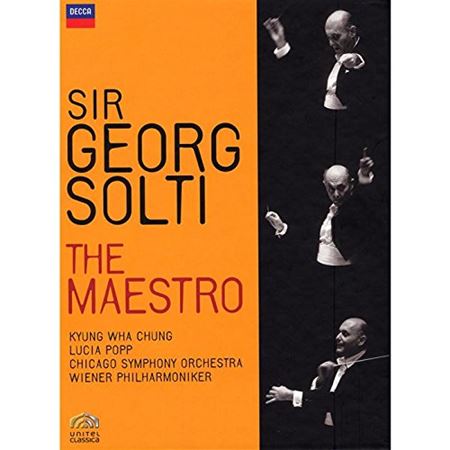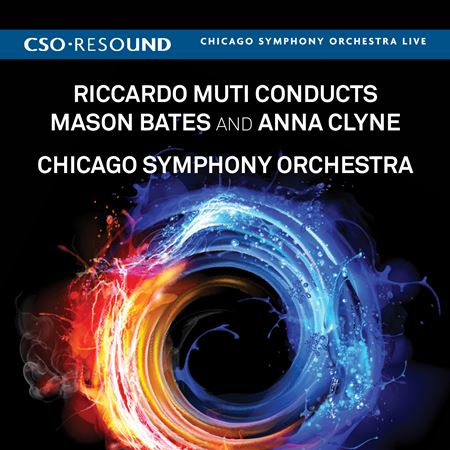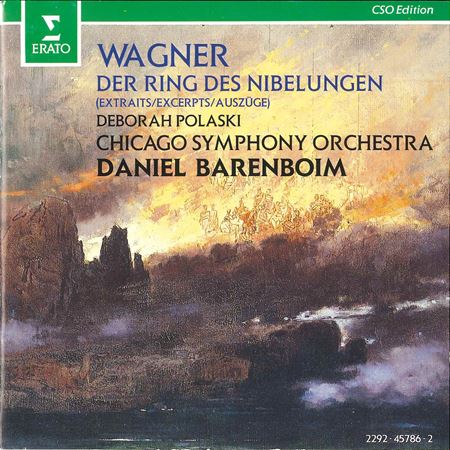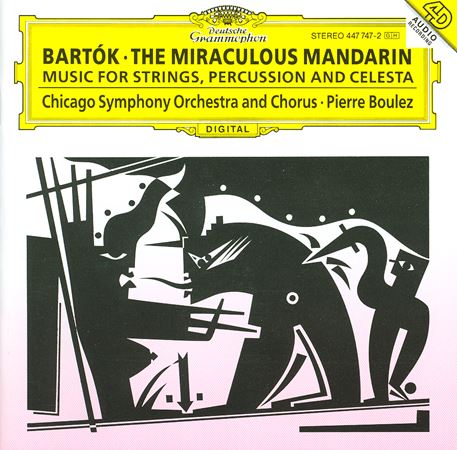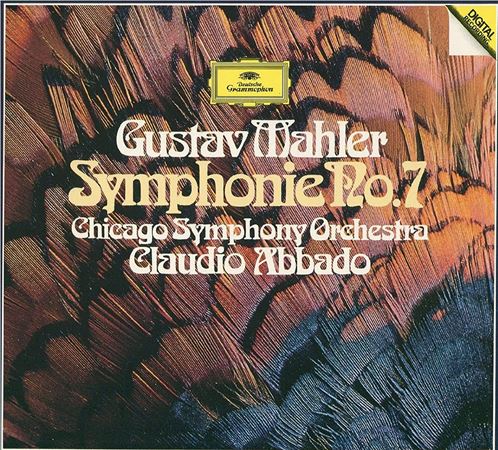Formerly the vice president for artistic planning and audience development for the Chicago Symphony Orchestra Association, Martha Gilmer is chief executive officer of the San Diego Symphony Orchestra.
Lauren Radack
The Chicago Symphony Orchestra’s commercial recording legacy began on May 1, 1916, when second music director Frederick Stock led the Wedding March from Mendelssohn’s A Midsummer Night’s Dream for the Columbia Graphophone Company. The Orchestra has since amassed an extraordinary, award-winning discography on a number of labels — including Angel, CBS, Deutsche Grammophon, Erato, London/Decca, RCA, Sony, Teldec, Victor and others — continuing with releases on the in-house label CSO Resound under tenth music director Riccardo Muti. For My Favorite CSO, we asked members of the Chicago Symphony family for their favorite recordings (and a few honorable mentions) from the Orchestra’s discography.
Martha Gilmer was named chief executive officer of the San Diego Symphony Orchestra in October 2014. Prior to that, she spent more than three decades with the Chicago Symphony Orchestra Association, ultimately serving as vice president for artistic planning and audience development. At the CSO, Gilmer developed long-term relationships with many of the most outstanding artists and composers of our time and developed a host of innovative programs connecting the Orchestra with new audiences in Chicago and around the world. She is a graduate of the Northwestern University School of Music and has been active as an alumna, serving on the Visiting Committee and the Dean Search Committee and delivering the 2000 commencement address.
STRAUSS Four Last Songs
Recorded in Orchestra Hall in 1977 by Unitel, released by London
Sir Georg Solti conductor
Lucia Popp soprano
“One of my first assignments as an intern at the CSO was to take a taxi to Medinah Temple to deliver to Sir Georg Solti his red cardigan that he had mistakenly left at Orchestra Hall. He was recording with the Orchestra — I do not recall the repertoire — and needed the cardy for his playback sessions between takes. Solti was a fanatical listener during recording sessions, adjusting and retaking as needed. He and many of the musicians would gather in the makeshift recording studio with James Mallinson and Jimmy Lock and the rest of the Decca crew, meticulously listening and notating every note of every session. It was the first of many sessions that I would observe during my long tenure with the CSO. Many years later, Solti was persuaded to do all of his recording from live performances, ushering in the end of the scheduled Saturday and Monday recording sessions.
“To choose only one recording of Solti’s legacy is a challenge, but a sentimental favorite of mine is his recording with Lucia Popp of Strauss’s Four Last Songs. Lucia and Solti were frequent musical partners in a wide range of repertoire through his Chicago years, and, of course, Lucia was often in Chicago during the time she was married to Peter Jonas, my mentor and my predecessor as artistic administrator of the Chicago Symphony Orchestra. The soulfulness and emotion of this recording brings back vivid memories of this glorious time. I also remember sitting with Valerie Solti soon after Sir Georg’s death and listening to the Four Last Songs, feeling the ache and poignancy of the fourth song, “Im Abendrot,” and indeed, it continues to be poignant today as we reflect on Valerie’s amazing life and commitment to Chicago."
BATES Alternative Energy
Recorded in Orchestra Hall in 2012 for CSO Resound
Riccardo Muti conductor
“Mason Bates was Mead Composer-in-Residence from 2010 to 2015, and during that time, he regularly listened to the Orchestra in a wide range of repertoire, including his own compositions. When the CSO commissioned Mason to write an orchestral piece, he had the idea to have it reflective of not only the Orchestra, but also the city. He latched on to the idea of the sound of energy as he wove the story of the earliest automobile through to an apocalyptic Icelandic scene projecting the devastation of climate change.
“Mason took off to Fermilab to record energy being made — much to the surprise of the scientists who believed that energy did not make sound. Mason proved them wrong. In his virtuosic work for orchestra, he adds his signature laptop-controlled sounds that echo around the concert hall and are heard in this vibrant recording. I am so happy that Riccardo Muti has championed the work of American composers and commissioned them to write new works for the CSO. Rafael Payare, music director of the San Diego Symphony Orchestra, chose to begin his tenure with Alternative Energy, bringing these wonderful sounds to San Diego.”
WAGNER Selections from Der Ring des Nibelungen (Die Walküre, Siegfried, and Götterdämmerung)
Recorded in Orchestra Hall in 1991 for Erato
Daniel Barenboim conductor
Deborah Polaski soprano
“My first memory of hearing the Chicago Symphony Orchestra is Sir Georg Solti’s complete Flying Dutchman in 1976 when I was a Northwestern University student sitting on the stairs in the gallery of Orchestra Hall. Throughout my 35 years with the CSO, I was fortunate to have many more opportunities to hear Wagner. Daniel Barenboim’s recording of music from the Ring was recorded with the CSO in 1991, 10 years after his first cycle in Bayreuth. Daniel’s long arching lines, his dramatic intensity and the Orchestra’s remarkable sound are reflected in this recording, recreating the drama of Wagner’s music.”
BARTÓK The Miraculous Mandarin and Music for Strings, Percussion and Celesta
Recorded in Orchestra Hall in 1994 for Deutsche Grammophon
Pierre Boulez conductor
Chicago Symphony Chorus
Duain Wolfe director
“The CSO has a deep history of performing music of Béla Bartók with music directors Fritz Reiner, Rafael Kubelík, Sir Georg Solti and Daniel Barenboim. Pierre Boulez frequently conducted the music of Bartók with the Orchestra as well. He recorded The Miraculous Mandarin relatively early in his time with the CSO, before he accepted the title of principal guest conductor and eventually conductor emeritus.
“Later in his tenure, Pierre would lead the Orchestra’s Beyond the Score performances of Bartók’s Miraculous Mandarin, including a performance in Carnegie Hall, which is seared into my memory. The commitment to this work and his connection to theater, art, writing and the Hungarian political landscape at the time Bartók wrote this piece infused his interpretation with great and deep understanding. Pierre helped us to understand and connect with this music, and it remains among my favorite performances with him and the CSO.
“This work also includes the excellent work of the Chicago Symphony Chorus, ethereally and wordlessly, and is an important, although relatively small, example of their incredible skill and musicianship.”
MAHLER Symphony No. 7 in E Minor
Recorded in Orchestra Hall in 1984 for Deutsche Grammophon
Claudio Abbado conductor
“And speaking of principal guest conductors, I had the immense pleasure of working with Claudio Abbado during his three seasons as principal guest conductor. There are many performances from that time period that I wish we had recorded and released, most notably Berg’s Wozzeck and Mussorgsky’s Boris Godunov.
“His recordings of Mahler with the Orchestra are a hallmark of his work during this time. In 1984, he was 50 years old, and would soon become music director of the Vienna Staatsoper. Brilliantly engineered by Rainer Brock, the sound of the Orchestra is rich, full, yet transparent. Abbado’s tenure with the CSO is an incredibly important chapter in the Orchestra’s history, and this recording is a wonderful document of that time.”
An honorable mention:
- IVES Symphony No. 4 with Michael Tilson Thomas for Sony (1989)
And two that “I wish could be released”:
- JANÁČEK Glagolitic Mass with Pierre Boulez (2010) (recorded for archives): “Of course, these performances also included the Chicago Symphony Chorus, with whom Pierre Boulez loved to collaborate, under the direction of Chorus Director and Conductor Duain Wolfe, who participated in many extraordinary recordings with the CSO and CSC.”
- BRAHMS Symphony No. 2 in D Major, Op. 73 with Carlos Kleiber (1983) (not recorded)
MFC-038
